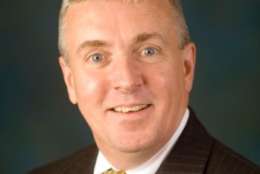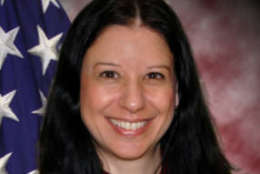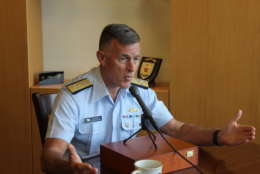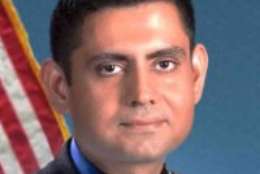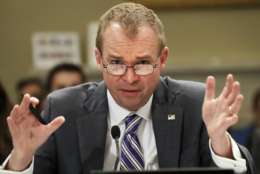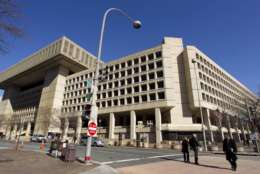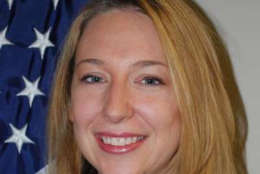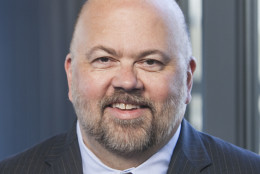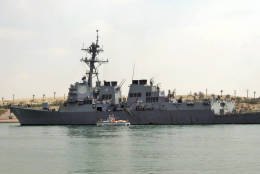Department of Homeland Security
-
Dan Mathews previously worked as the Republican staff director for the House Transportation and Infrastructure Committee's Subcommittee on Economic Development, Public Buildings and Emergency Management.
August 01, 2017 -
Work never stops for the Homeland Security office of inspector general. Two recent investigations found some common problems — weaknesses in IT systems or procedures for managing basic functions. Deputy Inspector General John Kelly shares the details on Federal Drive with Tom Temin.
July 31, 2017 -
His White House in turmoil, President Donald Trump abruptly announced late Friday he was appointing Homeland Security Secretary John Kelly to be his chief of staff, ending the tumultuous six-month tenure of Reince Priebus.
July 30, 2017 -
The Senate Homeland Security and Government Affairs committee passed the TSP Modernization Act of 2017, along with a handful of other bills that could soon affect the lives and careers of the federal workforce.
July 27, 2017 -
While the House passed its $696 billion version of the 2018 defense spending bill last week, one branch of the armed services — the U.S. Coast Guard — won't receive a windfall in defense spending. Coast Guard Commandant Adm. Paul Zukunft says the service is still a branch of the armed services, and should be funded as such.
July 20, 2017 -
The Homeland Security Department is sharing information and best practices not only on cybersecurity, but on cybersecurity training for a quarter million employees. Hemant Baidwan, director of governance and executive management at DHS, led the team resulting in the DHS Information Security Training Working Group. He tells Federal Drive with Tom Temin how it works.
July 20, 2017 -
The Homeland Security Department Science and Technology Directorate's cybersecurity division is in a more comfortable place now with many of its top research and development priorities. It's transitioned more than 75 major projects to practice and is finding a solid footing in the Silicon Valley start-up space.
July 13, 2017 -
The Office of Management and Budget has issued its guidelines to federal agencies for 2019 budget submissions, telling them to get comfortable with lower civilian spending and workforce levels.
July 13, 2017 -
After the collapse of the FBI headquarters project, will some sort of sanity or regulation ever come to federal construction?
July 12, 2017 -
Jeanette Manfra, the acting deputy undersecretary for cybersecurity at the Homeland Security Department, offered an in-depth look into the steps DHS and the government took to keep federal agencies safe from WannaCry.
June 29, 2017 -
Both Henry Kerner, the president's pick to be the U.S. Special Counsel at the Office of Special Counsel, and Claire Grady, the nominee to be the undersecretary for management at the Homeland Security Department, say they both share similar workforce priorities.
June 28, 2017 -
The Homeland Security Department's E-Verify program is supposed to keep illegal aliens from taking jobs in the United States. But the identification system still has many flaws and that fact alone has cost a half million legal workers their jobs. David Bier, a policy analyst at the Cato Institute joined Federal Drive with Tom Temin to explain the major implications of the floundering system.
June 28, 2017 -
Former Homeland Security CHCO Jeff Neal agrees that improving morale at DHS is a good idea. He just wonders if Congress is taking the right approach.
June 27, 2017 -
In today's Federal Newscast, the Navy would benefit from a proposed law that would grow its fleet to 355 ships. Estimates vary as to how quickly the 79-ship buildup could happen, or how it would be paid for.
June 22, 2017 -
Sometimes large and highly publicized procurements go so far off the rails the agency has no choice but to cancel them. That's what happened when Homeland Security's acquisition shop tried to make a multiple award deal for agile development. After two rounds of protests, the agency gave up. Joseph Petrillo, procurement attorney with Petrillo and Powell, joined Federal Drive with Tom Temin to talk more on the perceived irregularities.
June 22, 2017


